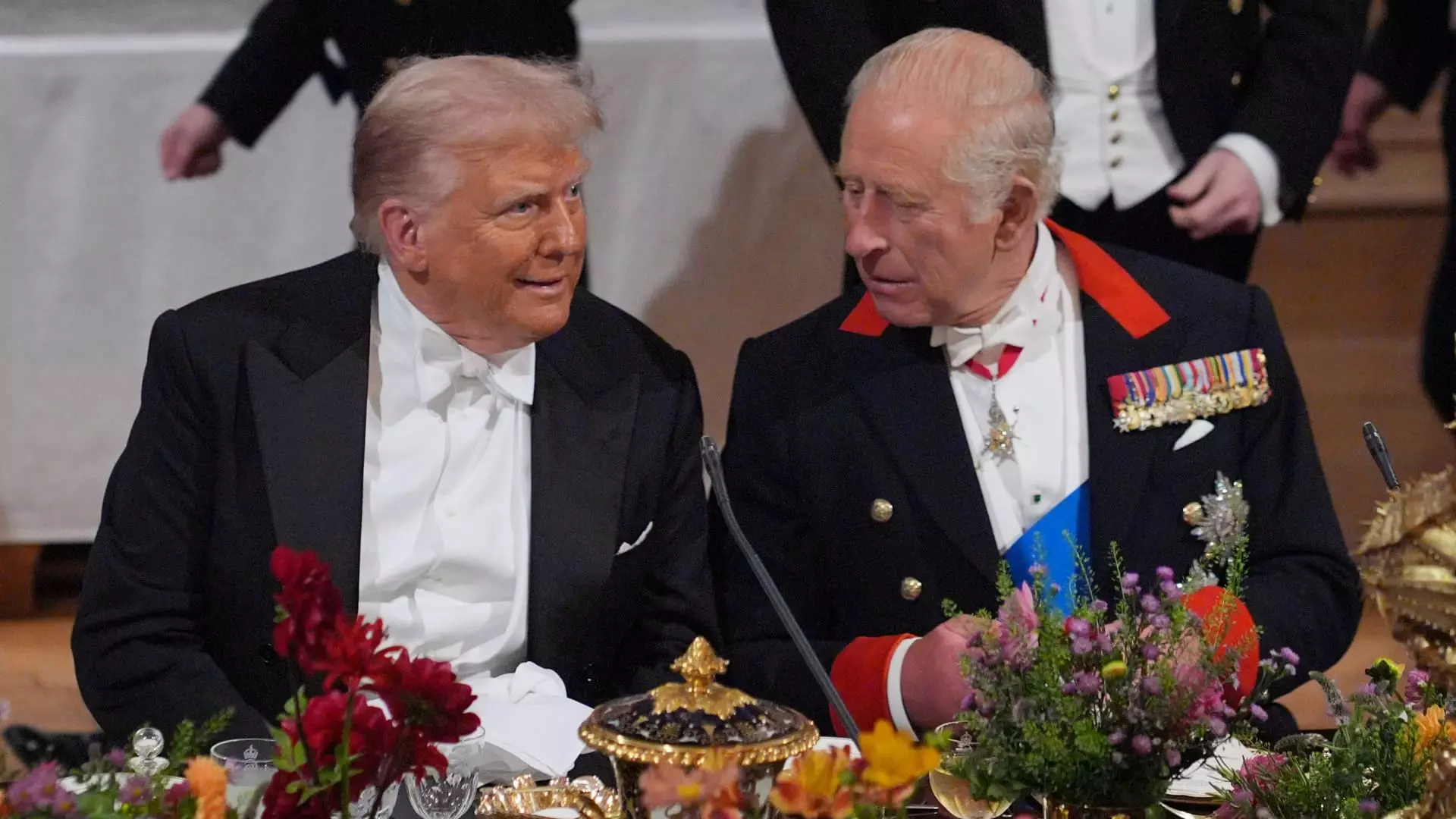The staged pageantry surrounding President Donald Trump’s visit to the U.K. exemplifies how diplomacy has become a spectacle rooted in spectacle rather than substance. The royal treatment at Windsor Castle, the elaborate pomp, and the carefully curated ceremonies serve more as theatrical performances designed to impress than genuine diplomatic progress. While such displays foster superficial goodwill, they often obscure the underlying disparities and strategic shortcomings that define modern international relations. The dance at Windsor—and the subsequent visit to Chequers—highlight a preference for showmanship over meaningful policy discussions, reminiscent of a bygone era that prioritized presentation over real progress. This superficial approach may boost short-term optics but fails to address the complex, often contentious issues that truly define the U.S.-U.K. relationship.
Merit of the Real Political Agenda
Amid the glitter and grandeur, the core agenda of the trip—negotiating trade deals, resolving tariffs, and addressing international conflicts—reveals less spectacle and more systemic self-interest. The projected focus on refining the “economic prosperity deal” underscores a fragile negotiation rooted in economic leverage, not genuine partnership. The U.K.’s push to eliminate tariffs on steel and aluminum, alongside the U.S.’s interest in maintaining strategic trade advantages, exposes the shaky ground upon which transatlantic alliances are built. These deals are driven by economic dominance and geopolitical power plays, rather than mutual benefit or collaborative growth. Meanwhile, pressing global crises like Ukraine and the Middle East are relegated to secondary status, suggesting that the true commodity exchanged is geopolitical influence rather than peace or stability.
The Illusion of Personal Chemistry and Diplomatic Success
While headlines trumpet the camaraderie between Trump and Prime Minister Starmer, the warmth is largely superficial. The narrative that their rapport signifies a turning point in transatlantic relations oversimplifies the reality—diplomacy in the modern age is far more transactional than personal. The enthusiastic reception, the jovial speeches, and the shared smiles mask a deeper underlying skepticism about the effectiveness and sincerity of such alliances. The U.K.’s public efforts to host a spectacular visit seem more about equipping the spectacle with legitimacy, rather than genuinely strengthening diplomatic ties that endure beyond moments of mutual admiration. The obsession with royal approval and celebratory ceremonies speaks to a nostalgic yearning for imperial grandeur, which bears little relevance to the pressing needs of contemporary international politics.
The Cost of Spectacle and Superficiality
The extravagant state banquet and parade at Windsor serve as symbols of an outdated concept of diplomacy rooted in monarchic tradition and superficial displays of power. These rituals incur enormous costs—both financial and political—without a corresponding return on investment in terms of tangible progress. The British government’s boasts of attracting £150 billion worth of investment may look impressive on paper, but it raises critical questions: are these investments truly beneficial, or are they merely strategic assets in larger geopolitical games? This spectacle-driven diplomacy often distracts from the stark realities faced by ordinary citizens—job insecurity, economic inequality, and global instability. The real danger lies in placing more faith in grand gestures than in crafting pragmatic, long-term solutions to the global crises that define our time.
The Power of Perception Over Policy
Trump’s statement that the U.K. was lucky to host him twice highlights a troubling emphasis on personal branding and perceived influence, rather than substantive policy outcomes. The U.S. president’s focus on refining trade deals, rather than addressing systemic issues like climate change or human rights, underscores the misplaced priorities of modern diplomacy. At its worst, this tendency commodifies relationships into transactional exchanges; at its best, it reduces international relations to a spectacle that feeds media narratives rather than solves real problems. The world’s complexities—war, migration, economic disparity—demand more than showy visits and staged ceremonies; they require authentic efforts rooted in mutual respect and genuine international cooperation. Until diplomacy sheds its obsession with spectacle, progress remains an elusive, often superficial, goal.

